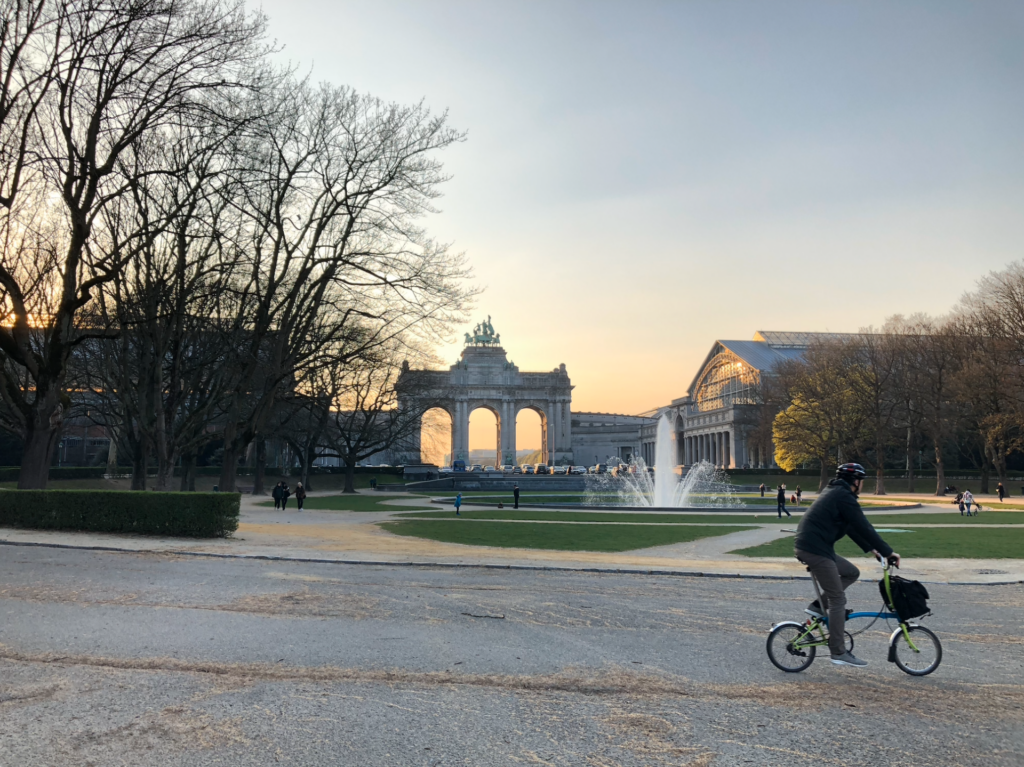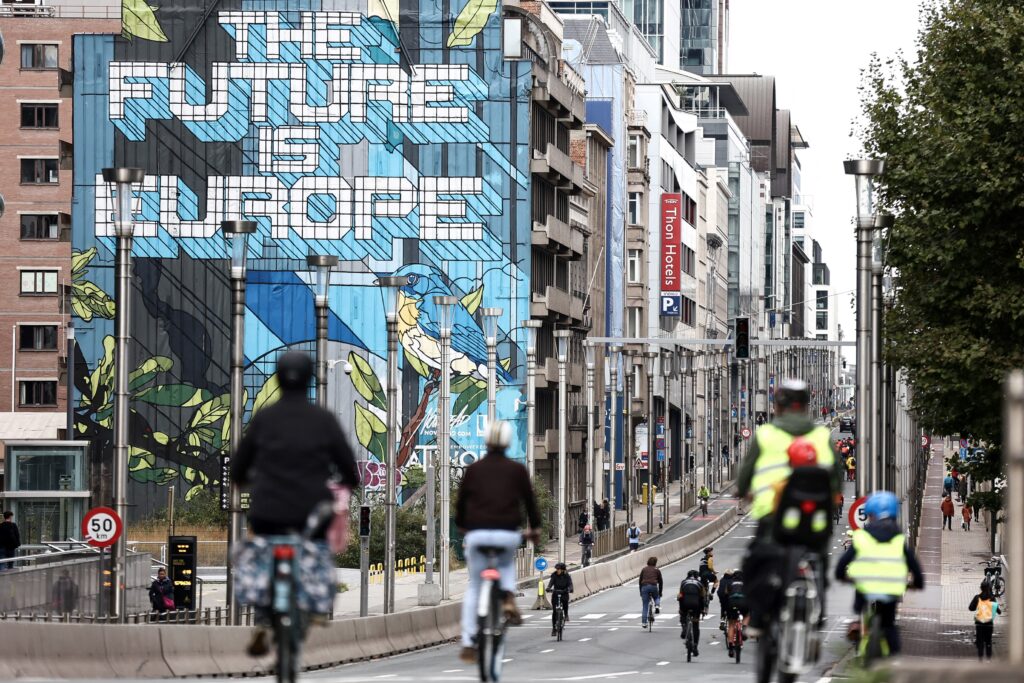With the Belgian Presidency of the Council of the European Union starting on 1 January, the Brussels-Capital Region wants to lead the conversation surrounding urban and environmental challenges and highlight the role of big cities in these issues.
As many as 75% of Europeans live in cities, which is why cities must help define European policy. Brussels authorities will host several events with international resonance to demonstrate this. During the events, they will emphasise that big cities are partners and driving forces behind European objectives.
"Over the next six months, Belgium will assume the Presidency of the Council of the European Union for the 13th time. A central role in this will be played by Brussels, which will become the beating heart of Europe during this period a little more than usual," said Brussels Minister-President Rudi Vervoort.
"At a high-level meeting on the future of EU urban policy and a conference on urban safety, the Region intends to stress the importance of cities and metropolises in the European cogwheels and in achieving European objectives in the fields of economic, social and territorial cohesion, climate and innovation."
Mayors of major cities
On 24 January, the Egmont Palace will host the high-level 'A European urban policy fit for the future' event, gathering more than 30 mayors of major European cities. They will sign a declaration, stressing their priorities regarding the European Parliament and Commission.
"It will be hugely interesting to host more than 30 mayors of major European cities during our cities event. Cities are forerunners, they are the first to face major societal challenges and often find the right answers," stated Brussels State Secretary for Urbanism and European Relations Ans Persoons.
"With our summit, we want to encourage European institutions to listen better to cities and let them co-decide on European policies. We look forward to using the European presidency to give the people of Brussels a better understanding of and feeling for Europe. In these turbulent times, we must continue to stress the importance of the EU for our prosperity."

Parc de Cinquentenaire in the European Quarter. Credit: Ugo Realfonzo / The Brussels Times
A week prior to the Egmont Palace meeting, Brussels Environment Minister Alain Maron, who will chair the Environment Council, is bringing together his European counterparts for a first informal ministerial meeting. Participants will be invited to exchange ideas on the resilience needed in the face of climate challenges, transition and strengthening of the economy.
The 27 Environment and Climate Ministers will also discuss future actions to be taken to achieve climate neutrality by 2050. These discussions will guide the Presidency's work on environment and climate over the next six months.
"The Belgian Presidency offers us a unique opportunity to prepare the future of the political environment and climate policy," Maron said. "From January, we can discuss the EU's priorities in response to the pressing challenges of climate change, biodiversity loss and pollution. Action in the coming years will be decisive to accelerate the transition fairly and equitably, strengthen our resilience and achieve climate neutrality by 2050."
A city of art
Tourists and residents can also expect a host of cultural events and art installations to take over Brussels during the Presidency, starting with an installation by Brussels artists Ann-Veronica Janssens and Michel Françoison in front of the European Parliament at the beginning of January.
The collective European feeling will be further enhanced by the immersive Bright Brussels light festival, taking place in the city centre and the European district. The exhibition ‘New ways of living’ will take another look at our society in the Saint-Géry Halls.
Related News
- ‘We need to deliver’: Belgium ready to rise to helm of EU presidency
- Belgians not hopeful for EU presidency results, poll says
- Belgium sets course for EU presidency in 2024 amid period of crisis
The Belgian Presidency of the EU also offers Brussels residents the opportunity to reconnect with the city’s European dimension. 'Europe Direct' undertakes several actions on the ground, engaging with Brussels’ young people to make them more aware of the EU’s impact on their daily lives.
Additionally, as the European Quarter now has a new brand, it can present itself as a lively, dynamic and welcoming neighbourhood.
Finally, the Presidency is a unique opportunity to strengthen the image of Brussels among the international public in the capital. A communication campaign built around typical Brussels anecdotes told by Europeans living in Brussels aims to portray the city as a non-conformist, accessible, pleasant and diverse city.

